Lessons from my Grandpa: Wisdom from a Lifetime of Cooking
I sat down with my grandfather for a conversation about cooking and food.
When my mother and I sat down to speak with my grandfather, Harold Guess, who is approaching his 92nd year of life in a few months, we asked him of all the dishes he’s made, if he had a favorite or specialty that he particularly enjoyed making. He responded with the following:
“The greatest joy I get out of cooking is seeing people enjoy it. It don’t care what it is. I’m always looking for something new to cook.”
This came as no surprise to us as Grandpa has spent the better part of the last three quarters of a century cooking for others. It doesn’t matter the occasion or even the specific meal. Grandpa loves to cook. In the summers, when my family used to come home to visit Louisville from New Jersey, as the end of our stay approached, there were two certainties we knew we would depart with: Grandmas hugs and kisses, and two pans of Grandpa’s cream cheese brownies. When Grandpa left town to spend the holidays with my uncle and his family in St. Louis last year, Grandpa spent the previous week making all sorts of dishes that could be frozen, from smoked turkeys , casseroles to pies so that his grandchildren and great grandchildren he lives with wouldn’t miss a single day of his cooking while he was away.
To highlight the breadth and impact of his cooking, I asked my siblings and cousins for their favorite dish that Grandpa has made for them. Not surprisingly, the cream cheese brownies came up in everyone’s memories, but for each person I was able to speak to, they also had their own unique dish as well. Among the dishes included peach cobbler, tuna steaks, papaya punch, homemade biscuits, chicken and rice, lemon meringue pie, bacon wrapped shrimp, spare ribs, turkey burgers, spaghetti and meatballs, beef and broccoli, orange chicken, and lomi-lomi salmon.
My mother and I sat down with Grandpa to find out how he developed his love of cooking and what his childhood experiences were with food. Did Grandpa have someone in his life that inspired him like he continues to do for us? What we learned from him was beyond anything we were expecting.
Practicality of cooking
When Grandpa was a child during the 1930s and 1940s, food wasn’t the luxurious experience it can feel like it is today. There weren’t many restaurants in his neighborhood that people frequented, and the ones that did exist were not accessible to blacks. Food and cooking were part of the necessities for daily survival, no different than any other chores for maintaining a house and a family.
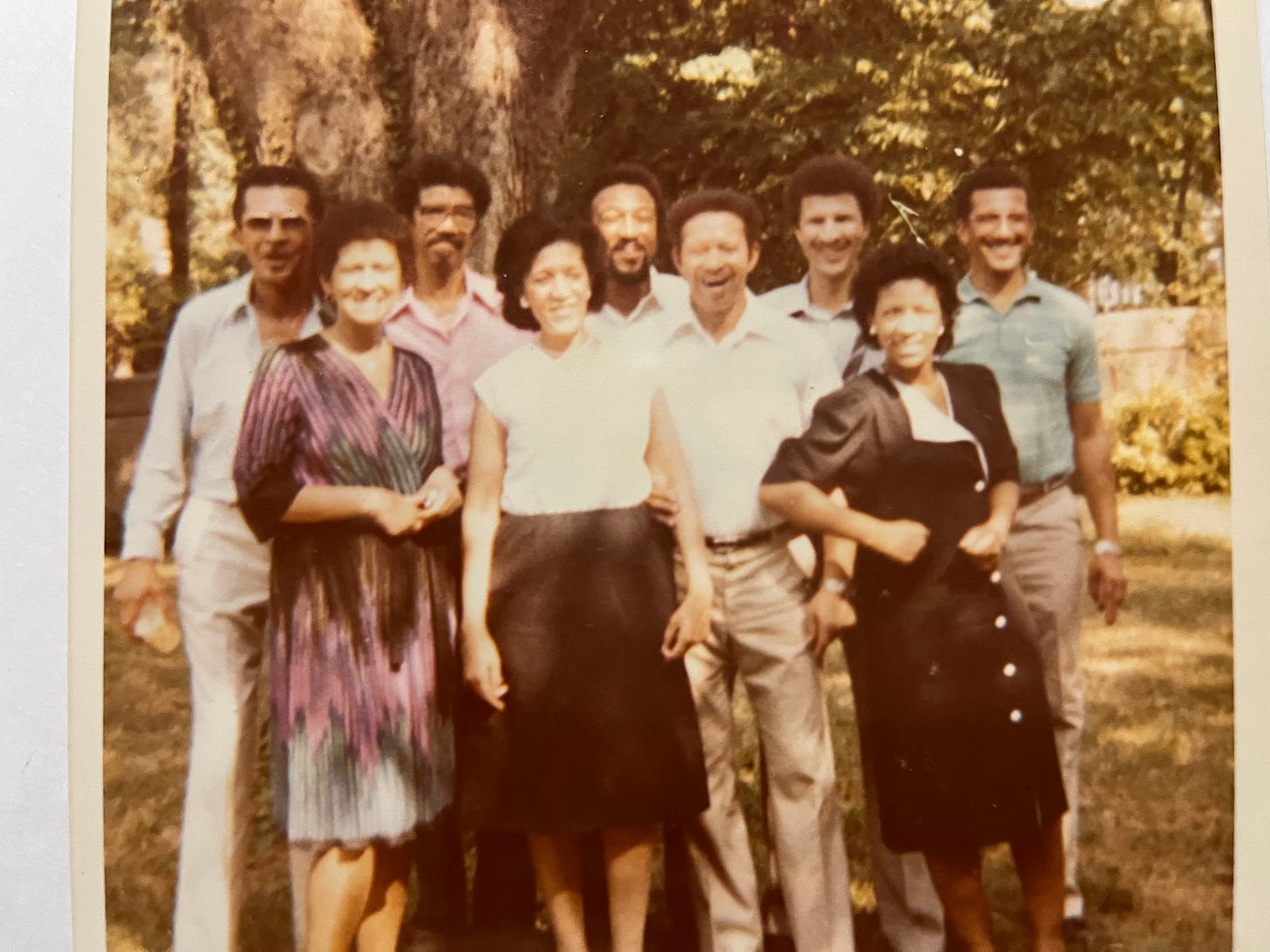
Just as chores would be done by committee in a household of nine children, no single person was responsible for cooking. When Grandpa was a child he most remembered his older sister Maude, who was 9 years his senior, doing the daily cooking while their parents worked. Grandpa contends that necessity is the biggest teacher. If you need to eat, you’ll figure out how to make things. There wasn’t a notion of “not being able to cook” in his family during that time.
“Cooking per say, is not the same as cooking now. Things were tight. You might go down to haymarket and get a bushel of green beans and you might eat them two or three days in a row. Cook with potatoes, and maybe some bacon, pork chops or something. It didn’t take a lot of preparation to do stuff…as you get older and there’s a number of you, you learn to fix your own breakfast, cereal, cream of wheat, oatmeal, or something like that.”
This of course didn’t preclude his parents cooking. His mother Willie, who Grandpa described as “coming from privilege” with her family owning a funeral home business, didn’t cook when she didn’t want to. She taught at a school before he was born, ran her own businesses from home, and also took over from her father as captain of the voting precinct, a position in which he was the first black person to hold. When she did though, she was described by Grandpa as being a great cook in her own right. One of his favorite food memories he described was her baking yeast rolls during the fall and winter time, and leaving the dough to rise on the registers around the house.
From his early childhood, Grandpa also recounted that his grandmother Alberta, particularly enjoying cooking. She used to run a restaurant out of the house making fabulous meals for people involved in horse racing. There were times where he and his older brother William would be sent to stay with her, and she would extend these “fabulous" meals to their school lunch boxes. He remembers the lunches being made with a beautiful presentation that were the envy of his teachers who felt this was too excessive for a child of around 6 years old!
Special Occasions and Treats
Though cooking day-to-day was a practical affair, “the holidays were all about the food”. During these times, Grandpa’s father George would get a live turkey and butcher it himself during the morning. Preparing and cooking a live turkey was an all day affair that Grandpa and his siblings would assist with. In his grandparents’ garage there was also a pigeon coop, from which they would source their fried squab. It was also normal for people to have live chickens around this time as well.
During the summer, his great uncle that lived next door would harvest the peaches from his peach tree and everyone would help to make peach ice cream. Grandpa remarked how far a gallon and a half of ice cream would go in those days, satisfying six or seven people. While the children enjoyed their peach ice cream, the adults would have their own treat, peach brandy!
Cooking as a vocation
Though Grandpa learned the basics of cooking growing up, his passion really began when he started working as a teenager at the Davis household, the wealthy owners of a drug store in Old Louisville on East Breckinridge street.
“Cooking was not a big deal to me until I started working for the Davis’. And then you start getting interested in things such as why this pie as opposed to that pie...”
What originally began as an after school job that paid $1 a day helping the family maid, grew into a full time live-in job during the summers of Grandpa’s teenage years. There, he was taught by Mrs. Davis how to shop for and prepare full course meals. He compared preparing a meal to building a house, balancing the buying, preparation and cooking of different parts of together and having it all done in a timely manner. He recalled preparing dishes such as veal kidney chops and crab rarebit.
His first full time cooking job came as the result of a planning gaffe. The Davis’ would throw big dinner parties. On this particular occasion in 1949, the party had been scheduled on their maid’s birthday, a day which she took off every year. It was a hard rule that she did not work on her birthdays. No exceptions. In order to salvage the party, with invitations already sent, they turned the teenage assistant. The Davis’ arranged with Grandpa’s mother to have him leave school early and come help prepare for theparty two or three days in advance. After it became apparent that Grandpa was able to handle this level of responsibility, their maid retired and he formally took on the role of cooking for the family.
Grandpa would end up bartending these parties as well. They would take place twice a month, and would from span from “Friday to Sunday” according to his colorful storytelling. They routinely were attended by people such as Mary Alice Hadley of Hadley Pottery, and the Von Allmens of the Von Allmen Dairy Farm. He had a particularly funny anecdote from being in charge of these events.
“You learn what everybody drank. And you learned which ones drove you crazy when they start drinking. So you learned to make sure they passed out! In other words, if they were drinking Vodka Collins, after about three, they just got vodka. Period! That’d get them knocked out and off your back.”
Being black, working for wealthy whites in Kentucky during the 1940s came with its drawbacks. As he implied with “getting people off your back” he would of course encounter prejudiced people. Prejudice was so deeply ingrained in some people that that didn’t realize it to begin with. In most situations it was better to bite your tongue and let the drinks speak!
“There are people that are nice. And then there are people that without ever saying it, will let you know that you were black. The Davis’ told me that most of their friends were prejudiced and they were too old to change.”
Despite these challenges, Grandpa was well regarded and well taken care of by the businesses in the area out of their respect for the Davis family. Mrs. Davis herself did a lot to engender in Grandpa his love of cooking and curiosity to continue his pursuit well beyond his time working for her in high school.
Food in Hawaii
In 1951, while Grandpa was a pharmacy student at Purdue University, his education was cut short by his enlistment in the United States Navy. The navy was a bit of an institution in the family. His older brother William had enlisted years prior and my uncle Chet would follow in their footsteps decades later. After completing his basic courses and training Grandpa would be sent to Hawaii.
The time that he spent in Hawaii would prove to be the most pivotal in his life. He would meet his wife Joyce and within a few years they would be married. Hawaii brought to him a new life and new experiences with an exposure to a culture that was alien to his own he had left behind in Louisville, Kentucky.
Grandpa had his first experiences with chopsticks while eating saimin, a wheat noodle soup of Chinese origin that reflected the influence of Chinese immigrants from the Guandong region. While he didn’t dare to try his hand at wrangling noodles, there was one man who appeared to him an experienced chopsticks user. Much to Grandpa’s dismay though, this man was just as inexperienced as he was, slurping up the soup!
He also experienced his fair share of culture shock with foreign foods. He found octopus poke difficult to eat. He was also not a fan of poi, one of the staple foods of Hawaii made from mashing taro root and adding water until it reaches a viscous consistency. Various dishes with pig’s blood were also something he was less enthusiastic about.
Stir fries and salted meats were dishes that he was able to enjoy though on his limited Navy pay of $30. An example of this would be Lomi-lomi salmon, a salted salmon salad with onion and tomatoes. This was a recipe he brought back with him from Hawaii to Kentucky. Lomi-lomi, originally being a Polynesian massage technique, refers to the orking down of fish cuts with a tougher consistency by massaging salt into it. Salmon, not being a fish indigenous to Hawaii was originally introduced by ships hailing from the Pacific Northwest in the 19th century. The onions were brought to Hawaii by Captain James Cook of the Royal Navy in 1778 and the tomatoes by Spanish horticulturalist Francisco de Paula Marin in the 1790s. While the original version resembled more a salted salmon poke, the modern incarnation of the dish reflects and influence from English and Portuguese sailors for whom salted fish were staples. Hawaii is a melting pot of cultures from Polynesian, East Asia, Europe and the United States, and the evolution of lomi-lomi salmon reflects that crossroads of history.
This dish has been passed down to us from Grandpa who used to make it during the summers when we visited from New Jersey. Eventually my dad taught my mom, nd to this day lomi-lomi salmon is one of the foods my sisters and I each make whenever we are craving a taste of home.
Lessons from a lifetime of cooking
One of the biggest lessons that came up time and time again in our conversation with Grandpa was the practicality of cooking in everyday life. Food is a basic need for survival and for him, necessity is the greatest teacher. From the time he was a child, he would learn from the school of necessity.
Curiosity is also important to expanding beyond what you know, and food as simply a means for survival. You need to be curious and willing to try new things, whether you end up liking them or not. This is how cooking became a joy for him. Cooking for Mrs. Davis taught him the basics of a dining experience and how to prepare full meals for others. His experiences in Hawaii exposed him to food from cultures across the world. These seeds blossomed into a lifetime of curiosity.
The internet has been his biggest tool in aiding this endeavor. Knowledge is ubiquitous today. From refining his turkey carving skills through Youtube videos, to searching recipes for Chinese food, Grandpa has never stopped searching for new recipes and ways to improve.
Finally, cooking is an act of sharing and showing love. Sharing a meal is a communal experience that brings people together of different ages, backgrounds and cultures. Grandpa’s cooking brings the whole family together whether at holidays or through reminiscing together about our favorite meals. At 91 he continues to cook for his family let alone any person that comes by to visit and he has passed down his love of cooking to his children, grandchildren and great grandchildren who have all continued to pay this love forward.



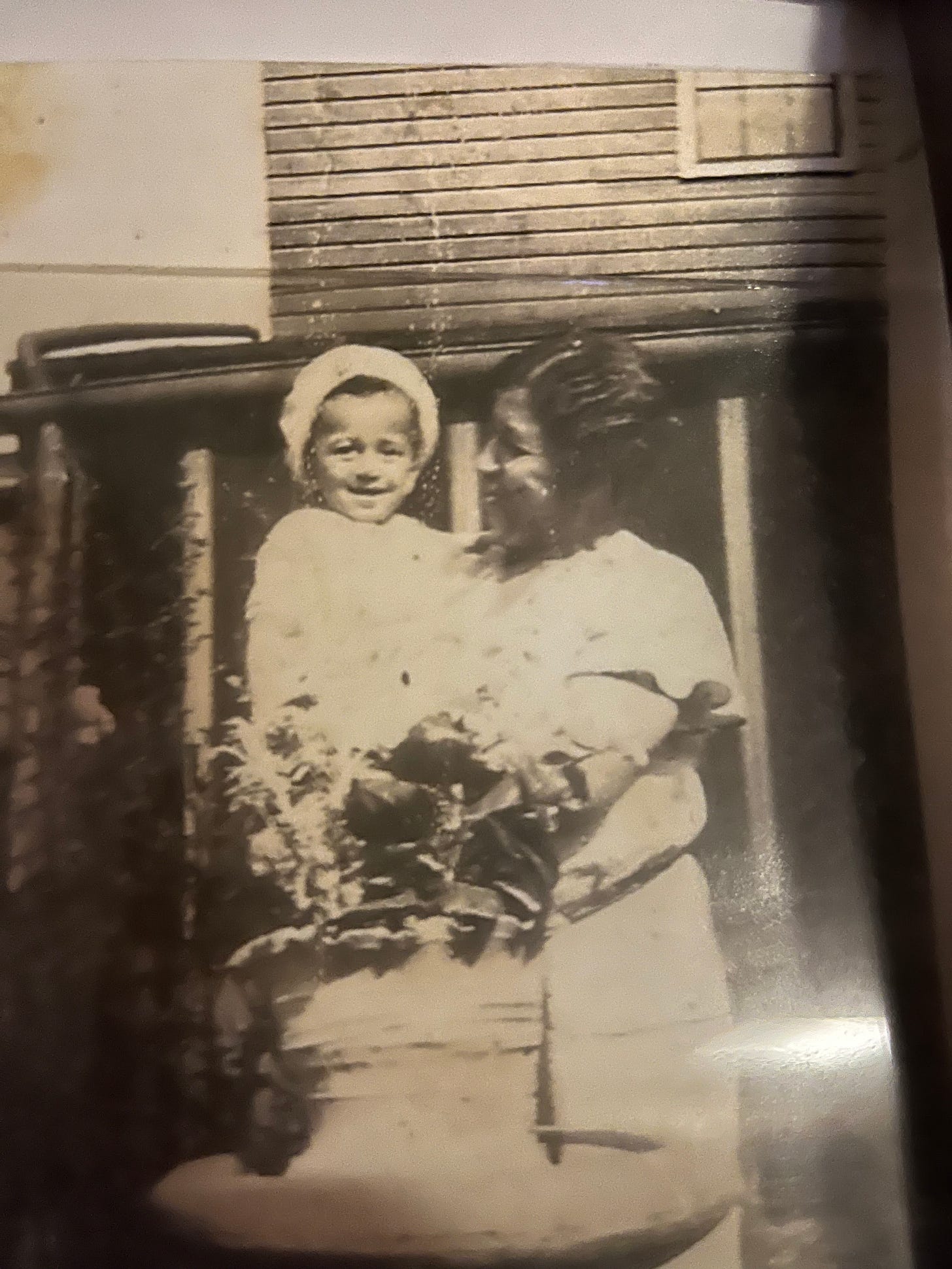
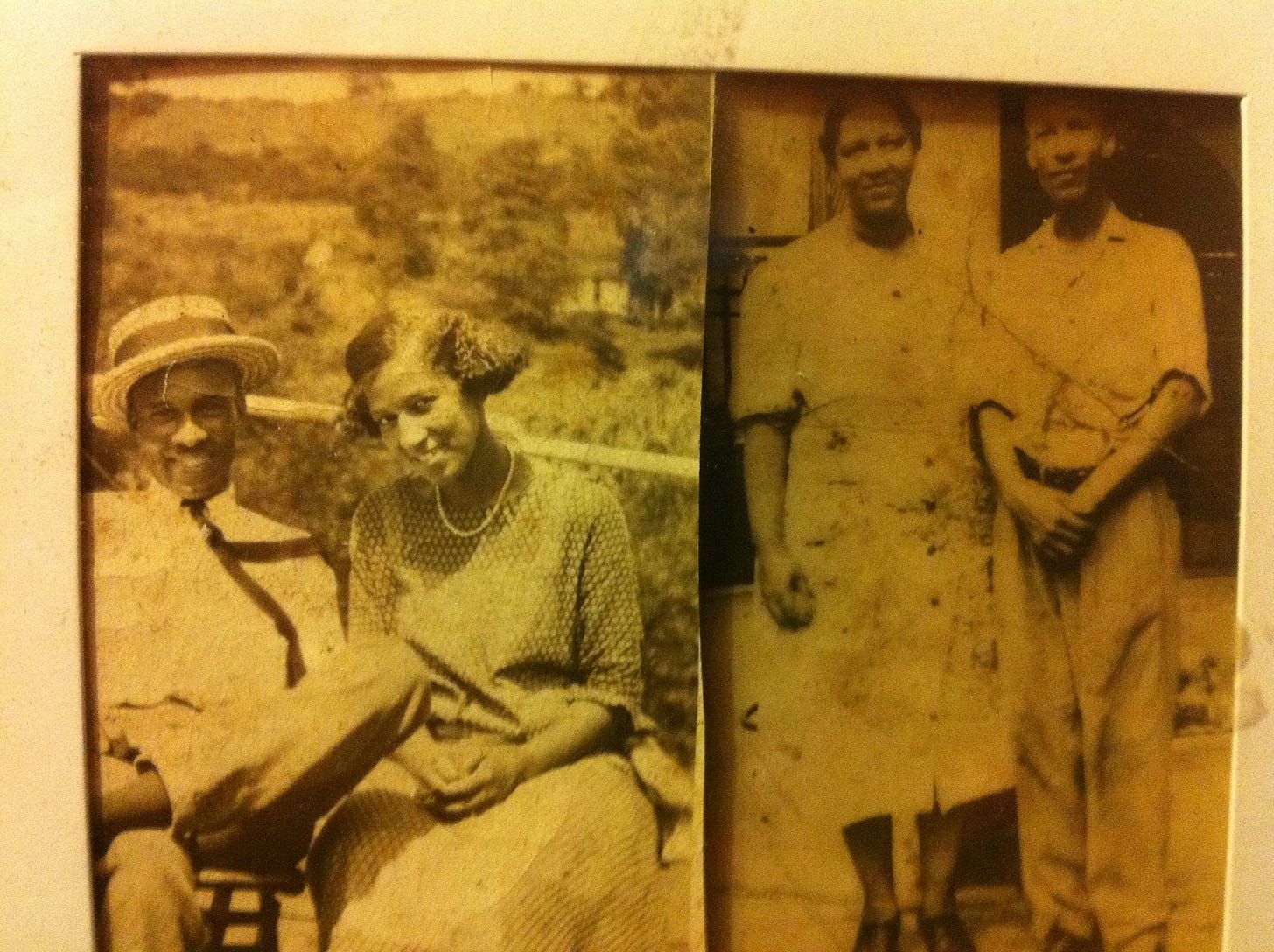

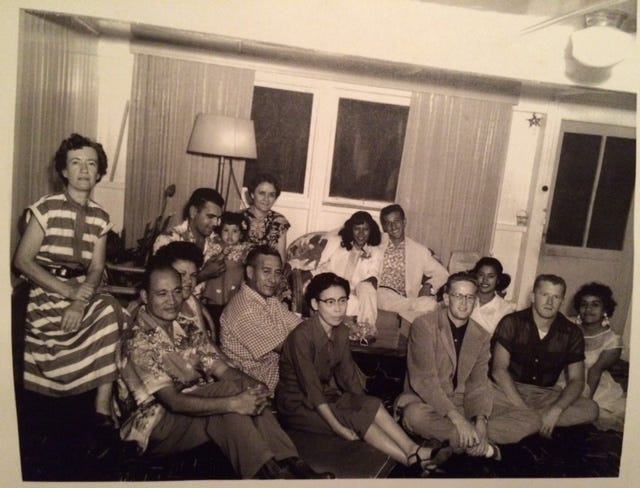
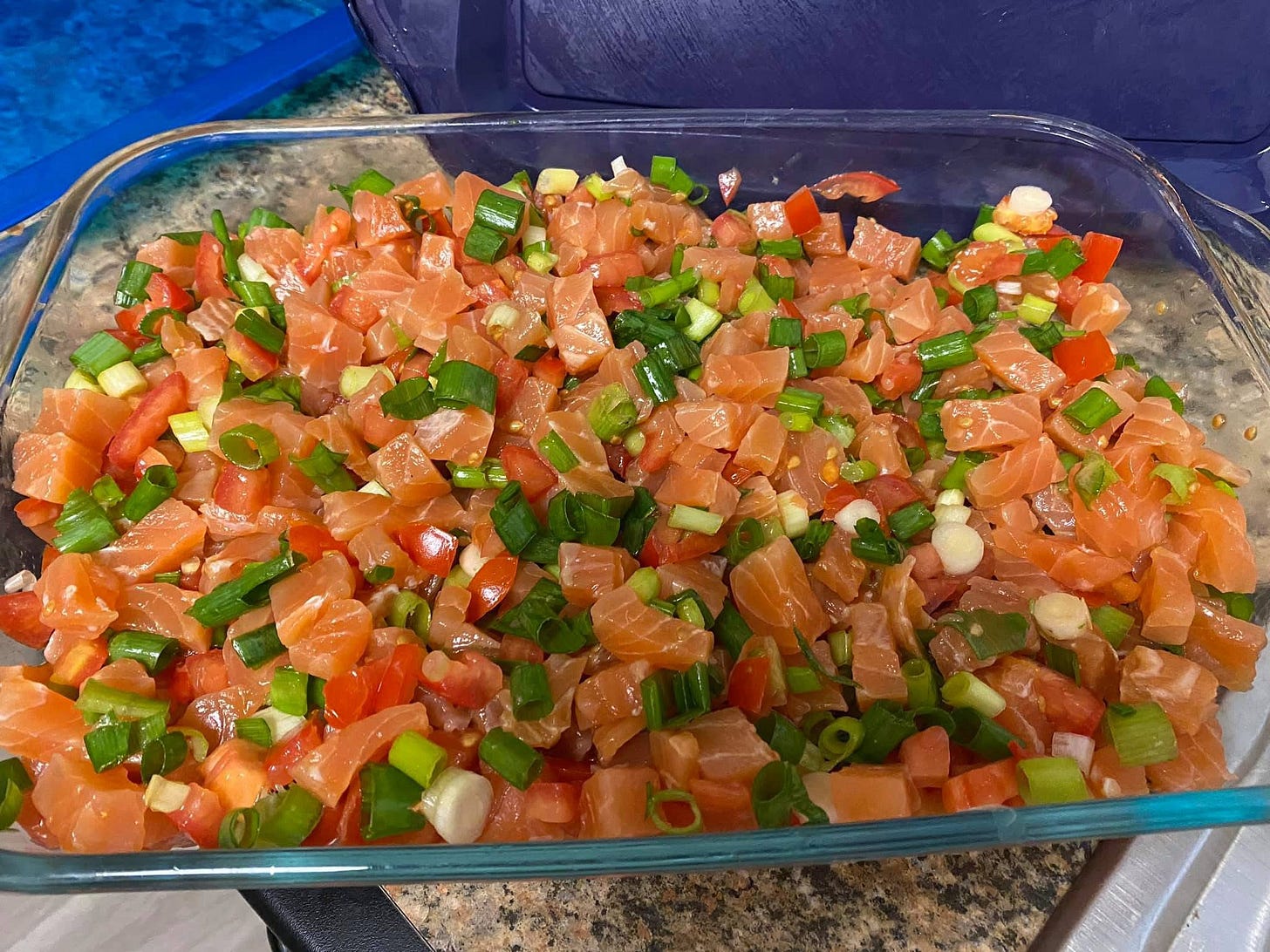
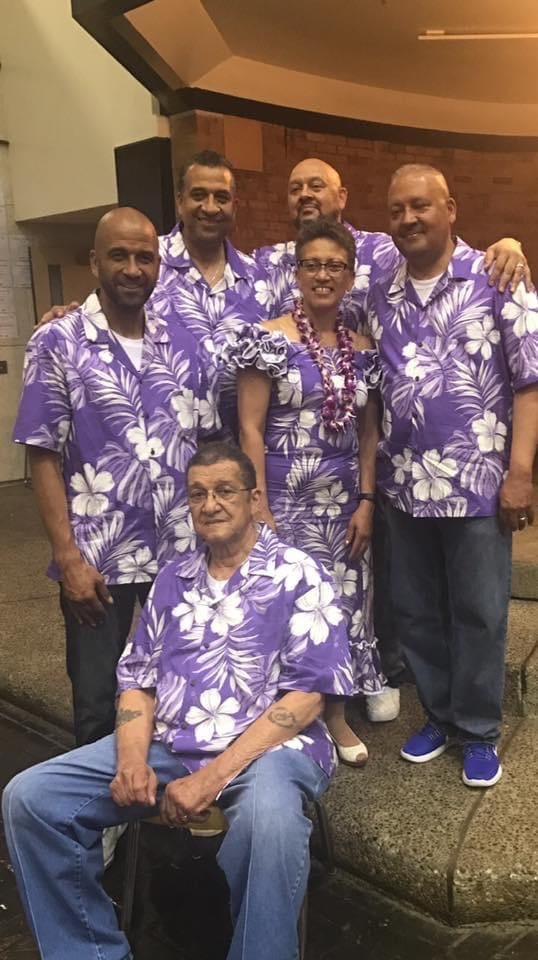
Beautiful!
As a personal chef, culinary instructor, and mom I really enjoyed reading this. I love that you asked your grandfather all about his lifetime of cooking and food. The photo of your grandfather and his siblings makes me think that their home cooking was as good for their health as it was for their souls. Thanks for sharing a bit of your family's history!